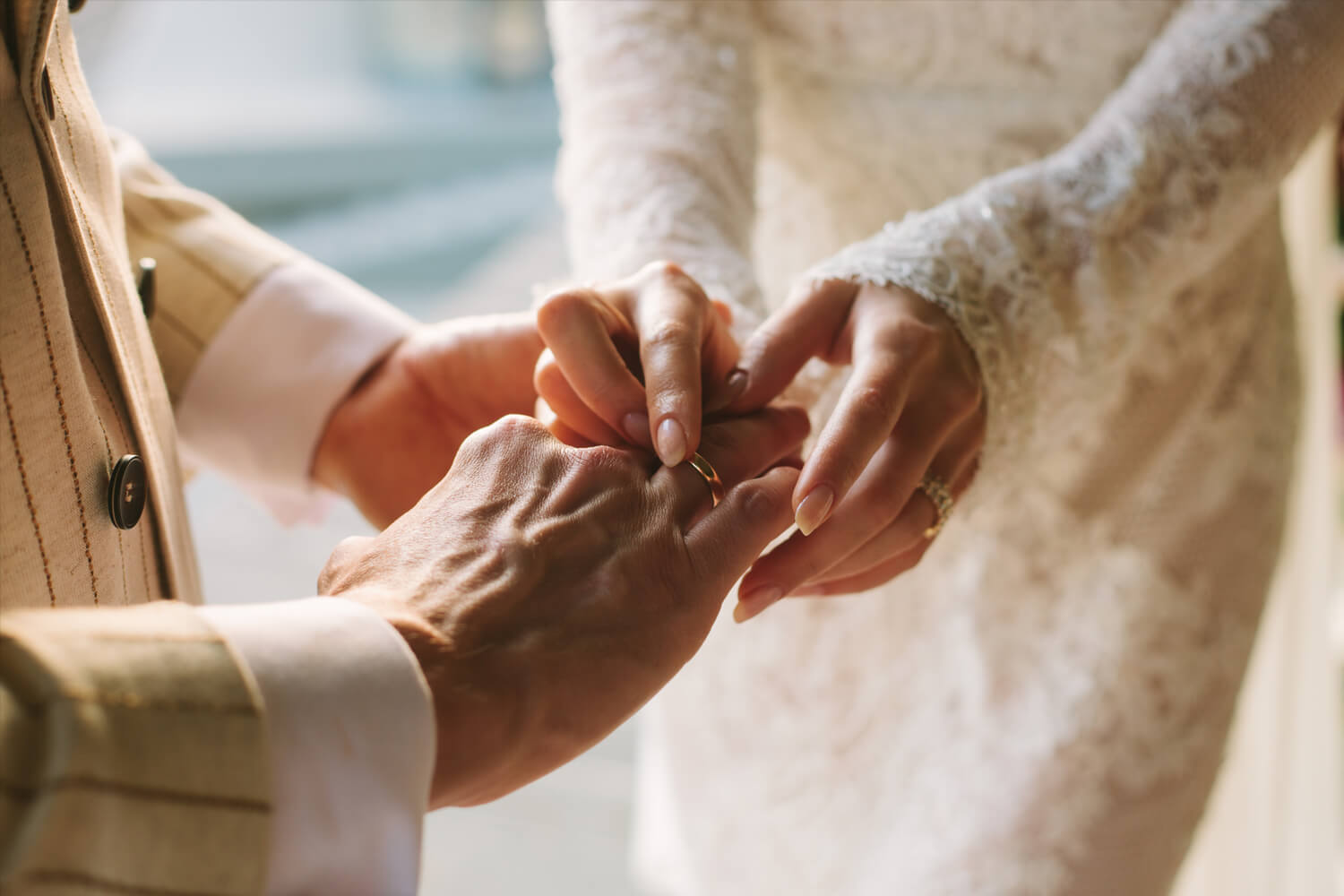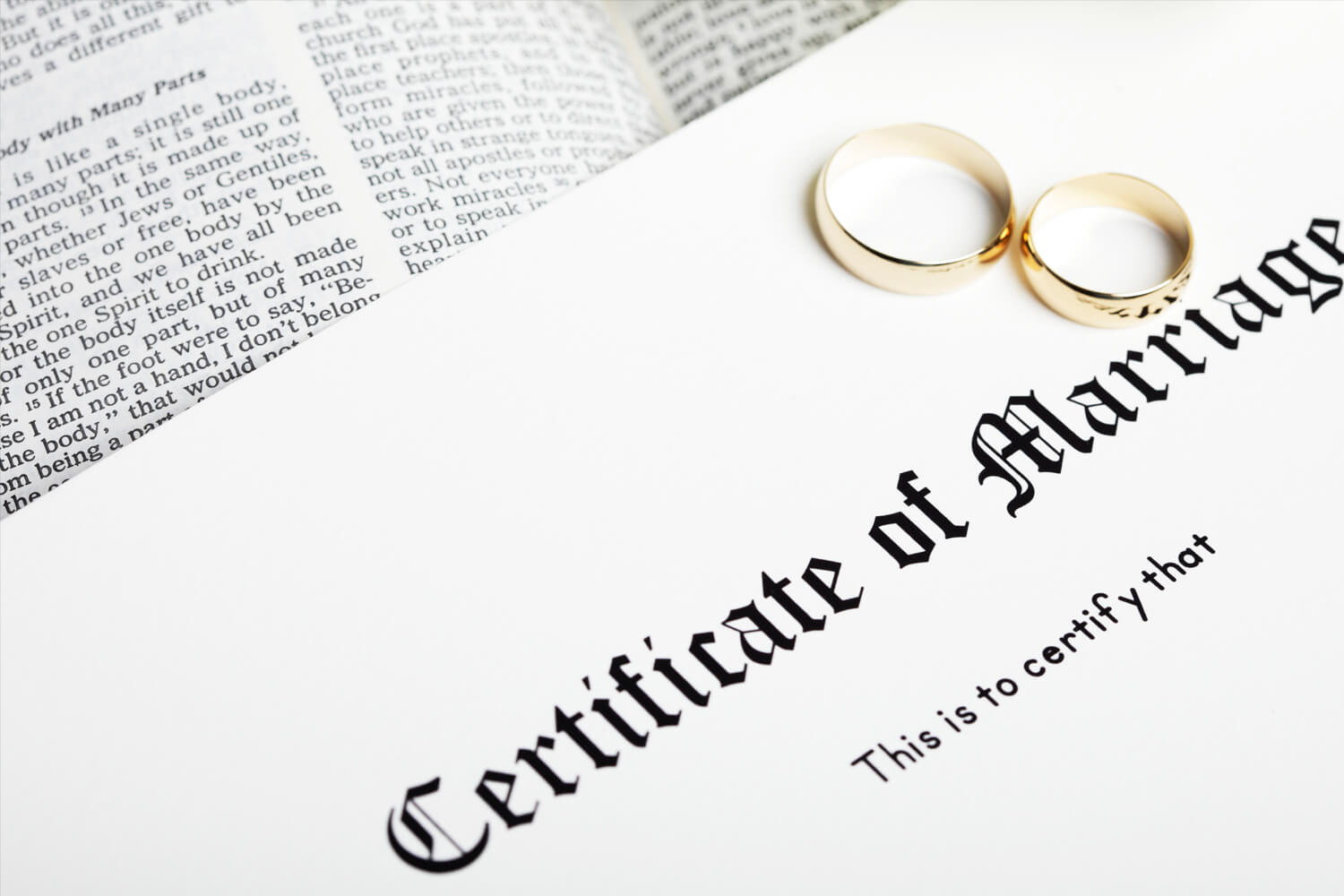Is a Marriage License the Same as a Marriage Certificate?

Planning a wedding is exciting! But many couples get confused about their marriage papers. You might think a marriage license and a marriage certificate are the same thing. They're not! These two documents serve very different legal purposes. Do you get a marriage license before the wedding? Yes! You always get your license before the ceremony.
Knowing the difference matters a lot. It affects whether your marriage is legal. It also affects your ability to prove you're married. Your marital status connects to important rights like insurance, taxes, and name changes.
In this guide, you’ll learn what each marriage document does, how to get them, and when you need them. We’ll also answer common questions such as whether a marriage certificate and a marriage license are the same thing, and what officially makes a marriage legal. By the end, you’ll know exactly which documents you need and how to handle them the right way.

What is a marriage license?
A marriage license is your legal permission to get married. Think of it as a "ticket" that says you're allowed to have a wedding ceremony. Without this document, you cannot legally marry.
So where can you get a marriage license? You get one from your local county clerk's office or registrar. The location depends on where you live or plan to marry.
When you apply for a marriage license, you'll need to bring certain information:
- Valid photo IDs (like driver's licenses or passports)
- Birth certificates
- Social Security numbers
- Proof of divorce or death certificate (if you were married before)
Are you legally married with just a marriage license?
No, you are not legally married with just a marriage license. A marriage license only gives you permission to get married; it does not make the marriage official. To become legally married, you must hold a valid ceremony performed by an authorized officiant, and that officiant must sign and return the license to the county for filing. Once it’s recorded, the state issues a marriage certificate, which serves as the legal proof of marriage.

What is a marriage certificate?
A marriage certificate is the official document that proves you are legally married. It’s issued by your state or county after your marriage ceremony has been performed and properly recorded. Think of it as your marriage’s legal record — similar to how a birth certificate confirms a birth.
The marriage certificate includes important details such as the couple’s full names, the date and location of the ceremony, and the officiant’s information. You’ll use it anytime you need to show legal proof of your marriage, such as when changing your name, updating insurance, or filing taxes.
Marriage license vs. certificate – key legal differences
Is a marriage license the same as a marriage certificate? No! Here are the main differences:
Marriage license:
- Permission to get married
- You get it BEFORE the wedding
- Allows your officiant to perform the ceremony
- Expires after a certain time period
Marriage certificate:
- Proof that you are married
- You get it AFTER the wedding
- Shows your marriage is legally valid
- Never expires
Think of it like learning to drive. A marriage license or certificate works like this: The license is like a learner's permit that lets you take the driving test. The certificate is like your actual driver's license that proves you can drive.
The license authorizes your wedding. The certificate validates that it happened.
Do you need both a marriage license and a marriage certificate?
You need both a marriage license and a marriage certificate for your marriage to be legally recognized. The marriage license is the document you apply for before the ceremony that gives you permission to marry. After the wedding, the completed license is filed with the county, and the government issues a marriage certificate as official proof that the marriage took place.
Certified marriage certificates explained
A certified marriage certificate is an official copy of your marriage record issued by the government. It includes a raised seal or stamp and an authorized signature, confirming that it’s a genuine document recognized for legal use. Certified copies are required whenever you need to prove your marriage for official or financial purposes.
To get a certified copy, contact the county clerk where your marriage was recorded, or you may be able to order online through your state’s vital records office.
Certified copy:
- Includes official seal or stamp and registrar's signature. It is issued directly by the county or state vital records office.
- It is accepted for legal use.
- Commonly used for name changes, passports, social security, immigration, property transactions, insurance, and benefits.
Non-certified copy:
- Plain photocopy or digital printout without seal or signature. Often used for personal records only.
- Not accepted for legal use.
- Commonly used for personal reference, genealogy, or informed record keeping.

Common questions about marriage documents
Where can I get a marriage license?
You get your marriage license from the county clerk's office or registrar. This is usually in the county where you plan to get married. Some states let you apply in any county.
Each state has different rules. Check your local county clerk's website for:
- Office hours and location
- Required documents
- Application fees (usually $30-$100)
- Waiting periods
Some places now let you apply online! But many still require you to appear in person.
How soon before the wedding should you get a marriage license?
This depends on your state's rules. Most states have waiting periods and expiration dates.
Waiting periods: Some states make you wait 1 to 3 days after applying before your license is valid. A few states have no waiting period.
Expiration dates: Most marriage licenses expire 30 to 90 days after you get them. You must have your ceremony before the license expires.
The best plan? Apply for your license at least 2 to 4 weeks before your wedding. This gives you time for any waiting periods. It also ensures your license won't expire before the big day.
Do you get a marriage license before the wedding?
Yes! You always get a marriage license before the wedding ceremony. This is a must.
Your officiant cannot legally marry you without seeing a valid marriage license. They'll check your license before starting the ceremony. Without it, your marriage won't be legal—no matter how beautiful the wedding was!
Ready to protect your marriage and family?
Marriage is just the beginning of your journey together. Whether you need help understanding your legal rights, making important family decisions, or navigating life's legal challenges, LegalShield is here for you.
Get affordable access to experienced lawyers who can help with:
- Marriage and family law questions
- Name changes and document updates
- Estate planning and wills
- And much more
Don't face legal questions alone. Visit LegalShield's Family Law page today to learn how we make access to legal help simple, affordable, and accessible for families like yours.
Protect what matters most. Get started with LegalShield now.
LegalShield is a trademark of Pre-Paid Legal Services, Inc. (“LegalShield”). LegalShield provides this blog as a public service and for general information only. The information made available in this blog is meant to provide general information and is not intended to provide legal advice, render an opinion, or provide a recommendation as to a specific matter. The blog post is not a substitute for competent legal counsel from a licensed professional lawyer in the state or province where your legal issues exist, and you should seek legal counsel for your specific legal matter. All information by authors is accepted in good faith. However, LegalShield makes no representation or warranty of any kind, express or implied, regarding the accuracy, adequacy, validity, reliability, availability, or completeness of such information. The materials contained herein are not regularly updated and may not reflect the most current legal information. No person should either act or refrain from acting on the basis of anything contained on this website. Nothing on this blog is meant to, or does, create an attorney-client relationship with any reader or user. An attorney-client relationship may be formed only after the execution of an engagement letter with an attorney and after that attorney has confirmed that no conflicts of interest exist. Nothing on this website, or information contained or transmitted by this website, is intended to be an advertisement or solicitation. Information contained in the blog may be provided by authors who could be a third-party paid contributor. LegalShield provides access to legal services offered by a network of provider law firms to LegalShield members through membership-based participation. LegalShield is not a law firm, and its officers, employees or sales associates do not directly or indirectly provide legal services, representation, or advice.



